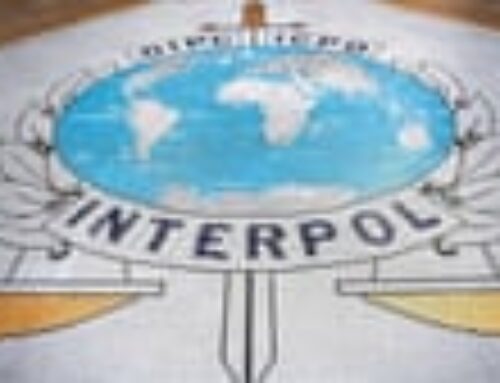“All I know is that it’s time to leave this country, and go very far away.” Those words, from a staff member at the TV station attacked by masked gunmen live on air on Tuesday, encapsulate the shock and despair that many in Ecuador now feel. The assault on TC Televisión in Guayaquil, Ecuador’s most dangerous city, was one of multiple spectacular and coordinated attacks by gangs, in which at least 10 people were killed.
Murderous crime has soared over recent years. But this was not just about gangs running rampant and battling each other with a sense of impunity, while brutalising anyone who got in their way. The invasion of a university and hospitals, the kidnapping and killing of police and prison guards, the torching of cars in residential areas, attacks in the Amazon region and looting in the capital, Quito – all these showed gangs operating well outside their usual fiefdoms, banding together, and turning on national institutions and civilians to try to force political leaders to back off. This strategic brutality, which has been described as “violent lobbying”, has been used elsewhere in Latin America, but is new to Ecuador. For many, it feels as if the fate of the country itself is at stake.
The explosion of violence was precipitated by the new and inexperienced president Daniel Noboa’s crackdown on organised crime, the escape from prison of the feared gang boss Adolfo Macías, known as Fito, and Mr Noboa’s declaration of a national state of emergency and curfew. The president said Ecuador was in “internal armed conflict”, designated 20 gangs as terrorist groups and said the military should “neutralise” them, albeit “within the bounds of international humanitarian law”.
His campaign came in response to surging violence in a country once regarded as largely safe and stable. The homicide rate rose more than six-fold between 2018 and 2023, to 40 murders per 100,000. The assassination last August of a presidential candidate, Fernando Villavicencio, who had campaigned on a platform of tackling violence, crime and corruption, rocked the nation. This week marks a new nadir.
Ecuador’s gangs have been transformed by their dealings with cartels and other transnational crime groups. The country sits between two cocaine-producing neighbours and has a long, porous coastline. The dollarised economy makes it easier to move and launder illicit earnings. Counter-drugs operations in other countries, and the disbanding of armed groups in Colombia, encouraged traffickers to look farther afield. Slashing spending on security in the past, due to IMF budget demands, didn’t help. And the insatiable appetite of consumers for cocaine – particularly in Europe, the most lucrative market – has fuelled the trade.
Mr Noboa, who faces an election next year, so far has the public on his side. But Tuesday’s events show just how hard a struggle he faces in trying to rein in the gangs. There are also profound questions about his approach. He has announced that he has commissioned new maximum security and supermax prisons modelled on those used in El Salvador by its president, Nayib Bukele. Mr Bukele’s “iron fist” campaign against gangs has been wildly popular but tramples over rights, and is highly unlikely to prove sustainable. A true, long-term solution will be far harder to implement, requiring Ecuador to cooperate internationally on tackling organised crime and to make rigorous, well-planned, lasting efforts to tackle both corruption and poverty at home.
-
Do you have an opinion on the issues raised in this article? If you would like to submit a response of up to 300 words by email to be considered for publication in our letters section, please click here.




